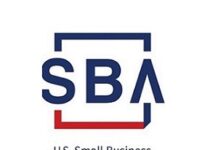(Updated, 4:43 p.m.)
PROVIDENCE – Mayor Jorge O. Elorza is seeking state help in collecting more taxes from the city’s largest nonprofits, specifically from “non-mission essential” properties, which could include parking lots that generate revenue or sites leased to businesses.
The city, like many others, has tight finances and a high percentage of land that is occupied by nonprofit entities, according to Rep. John J. DeSimone, D-Providence, Rhode Island’s House majority leader. He was asked about the request for new taxing authority by Laurie White, President of the Greater Providence Chamber of Commerce, at the Chamber’s annual legislative luncheon.
The legislation is being drafted by Rep. John M. Carnevale, D-Providence, according to DeSimone, and is expected to be introduced soon.
“Providence is struggling, like many cities,” DeSimone said. “There are challenges. This new mayor is trying to meet those challenges.”
White questioned whether extracting additional payments from nonprofit colleges, universities and hospitals was counter-productive, given their role in the city and state economy as job centers.
“This is the reopening of an agreement we just finalized a few years ago,” White said, referring to the state’s program to reimburse municipalities for tax revenue they cannot collect on nonprofit entities.
The payment-in-lieu-of-taxes program is in addition to individual agreements that nonprofits have with municipalities. For instance, over the course of several months in 2012, the city’s seven major tax-exempt institutions, including Brown University and Providence College, reached PILOT agreements with the city, which would provide varying payments to Providence over the course of decades.
In December 2012, Providence College agreed to contribute $3.84 million to its host city over 10 years. Brown University agreed in May of that year to provide an additional $31.5 million to the city over the next 11 years.
In response to a query, Brown noted that it pays $8.15 million annually to both the city and private entities, some of which is in lieu of taxes on its academic property, but some of which is on other property it owns that are deemed to be commercial.
DeSimone estimated the percentage of land in Providence that is tax-exempt approaches 50 percent, and has a value exceeding $1 billion.
“The city of Providence is the capital city. It has a substantial number of businesses. We have to come together to try to figure out how a billion dollars of real estate doesn’t go without paying enough taxes.”
It was not immediately clear Wednesday afternoon whether the legislation sought by Elorza would reopen the existing pilot agreements. Carnevale could not be reached for comment.
Evan England, a spokesman for Elorza, said the focus is on “non-mission essential property” held by the large nonprofits, which do not directly contribute to their mission. It does not affect the land areas or buildings that are central to a nonprofit’s function, including academic or research buildings, student centers and other lands that do not produce revenue.
No specific tax rate is being discussed, according to England. While it appreciates its nonprofits, England said, the city is trying to be fiscally conscious. The request is one of several priorities for Elorza in the fiscal 2017 state legislative cycle. In other financial issues, the city is seeking an increase in its state PILOT funding.
“We are always trying to be fiscally responsible and identify ways to [address] some of the financial challenges the city faces,” England said.











